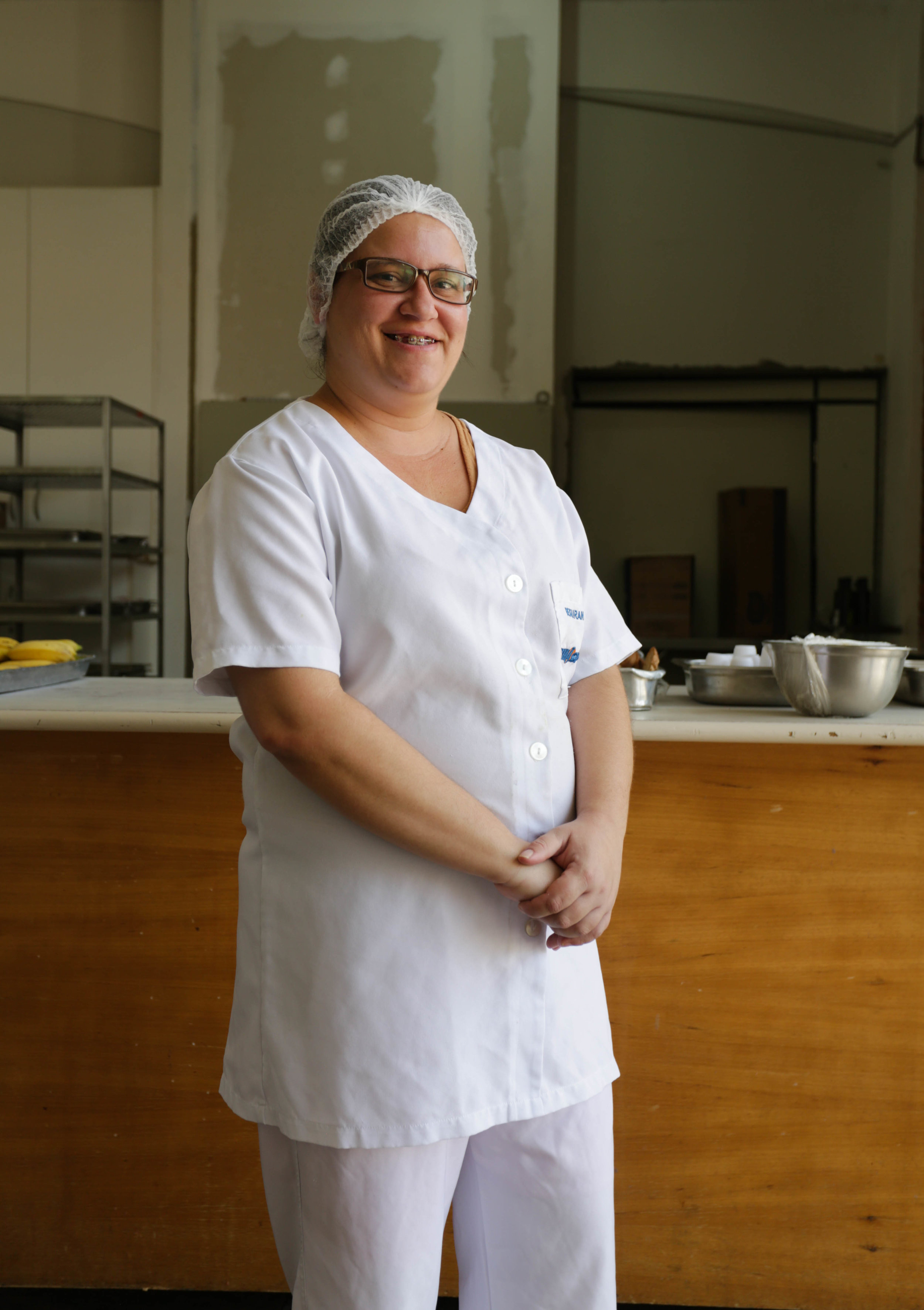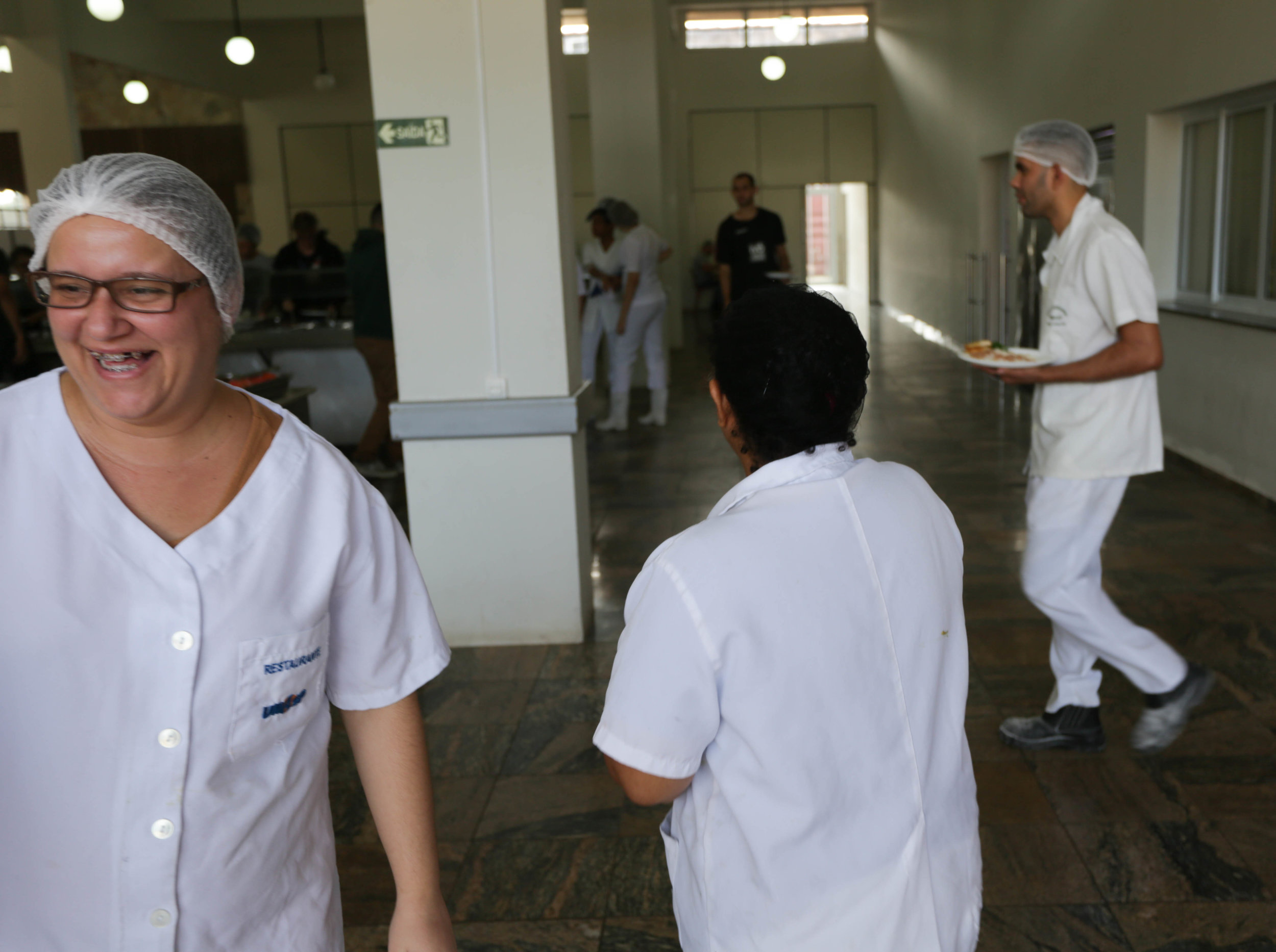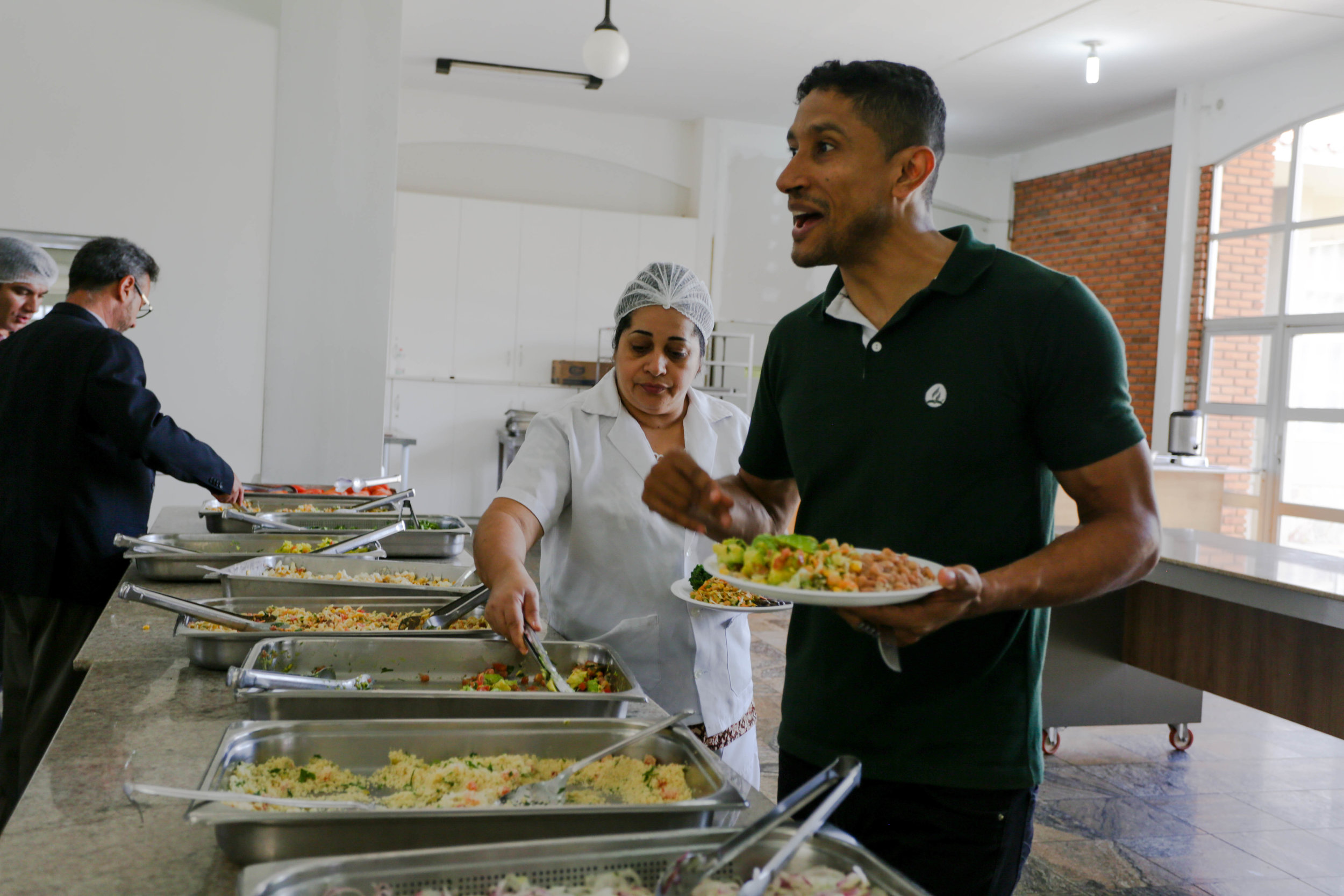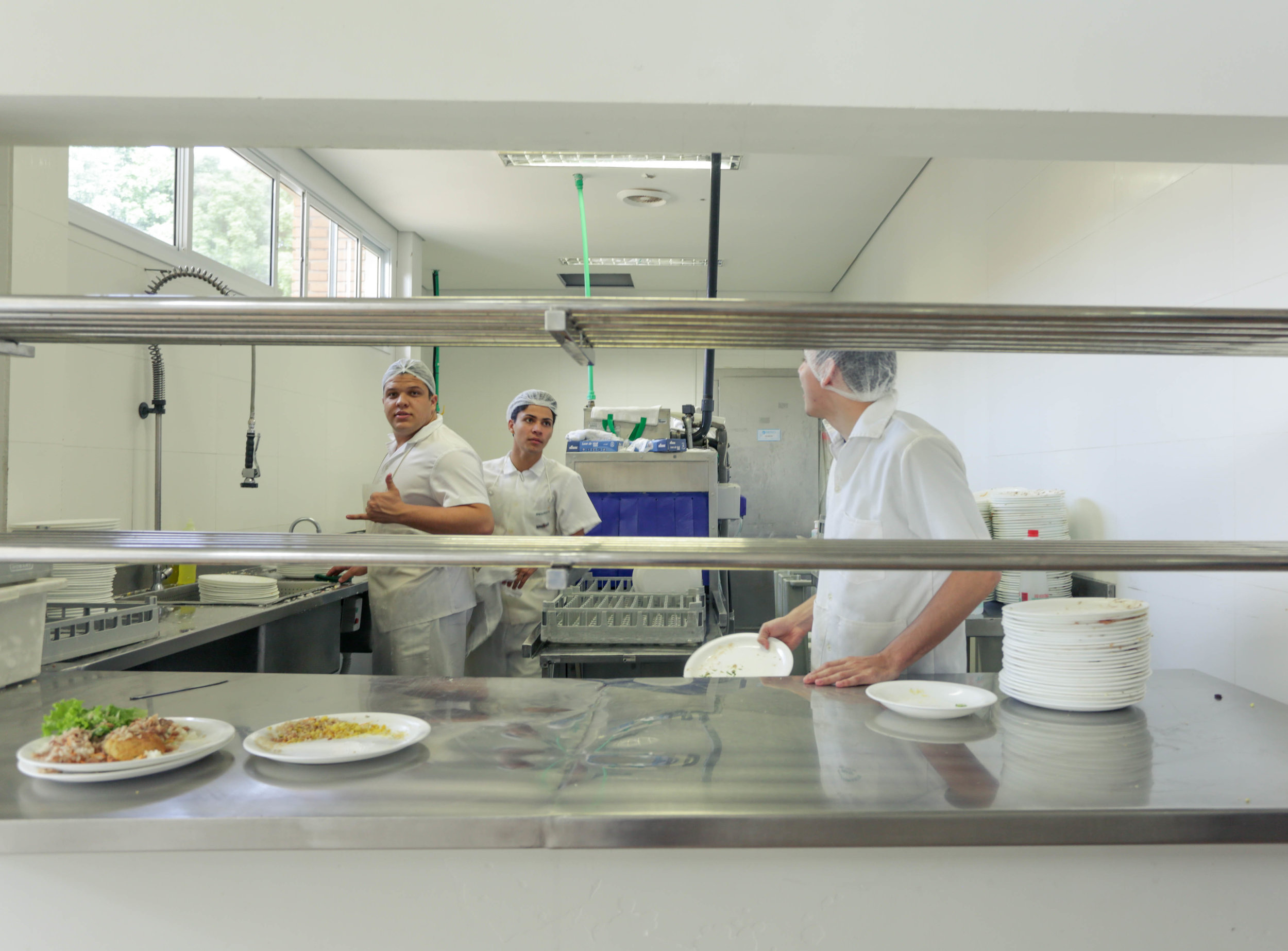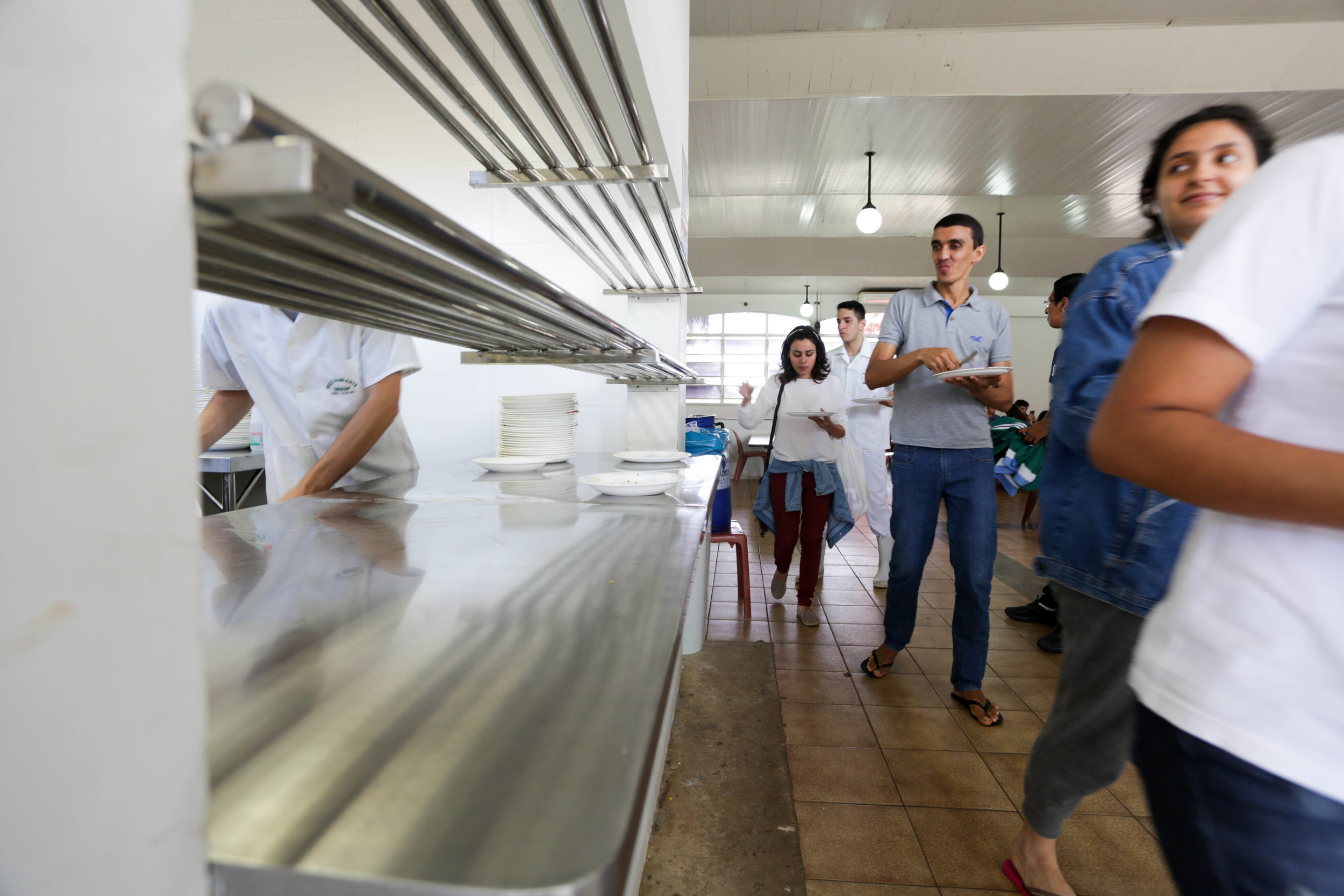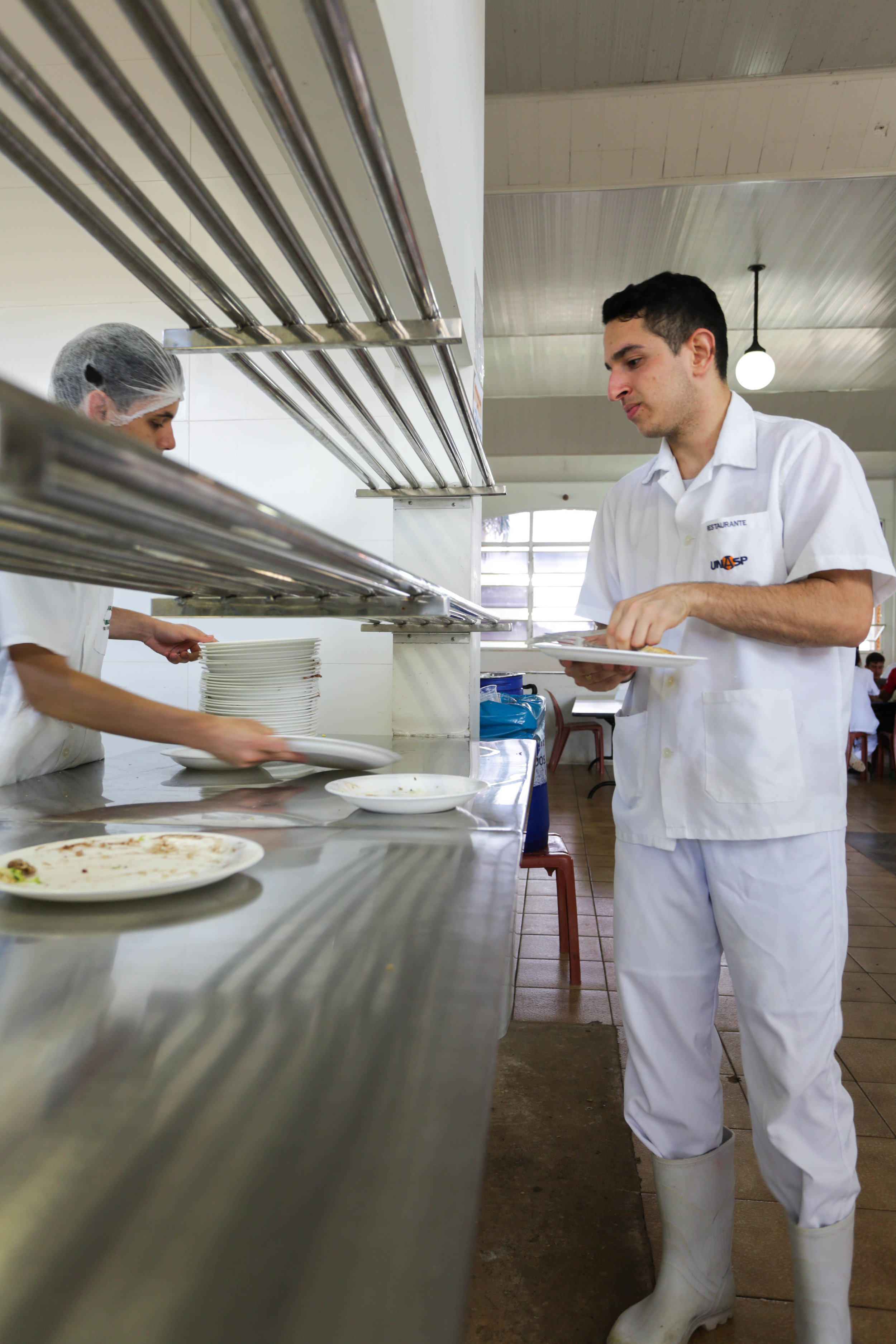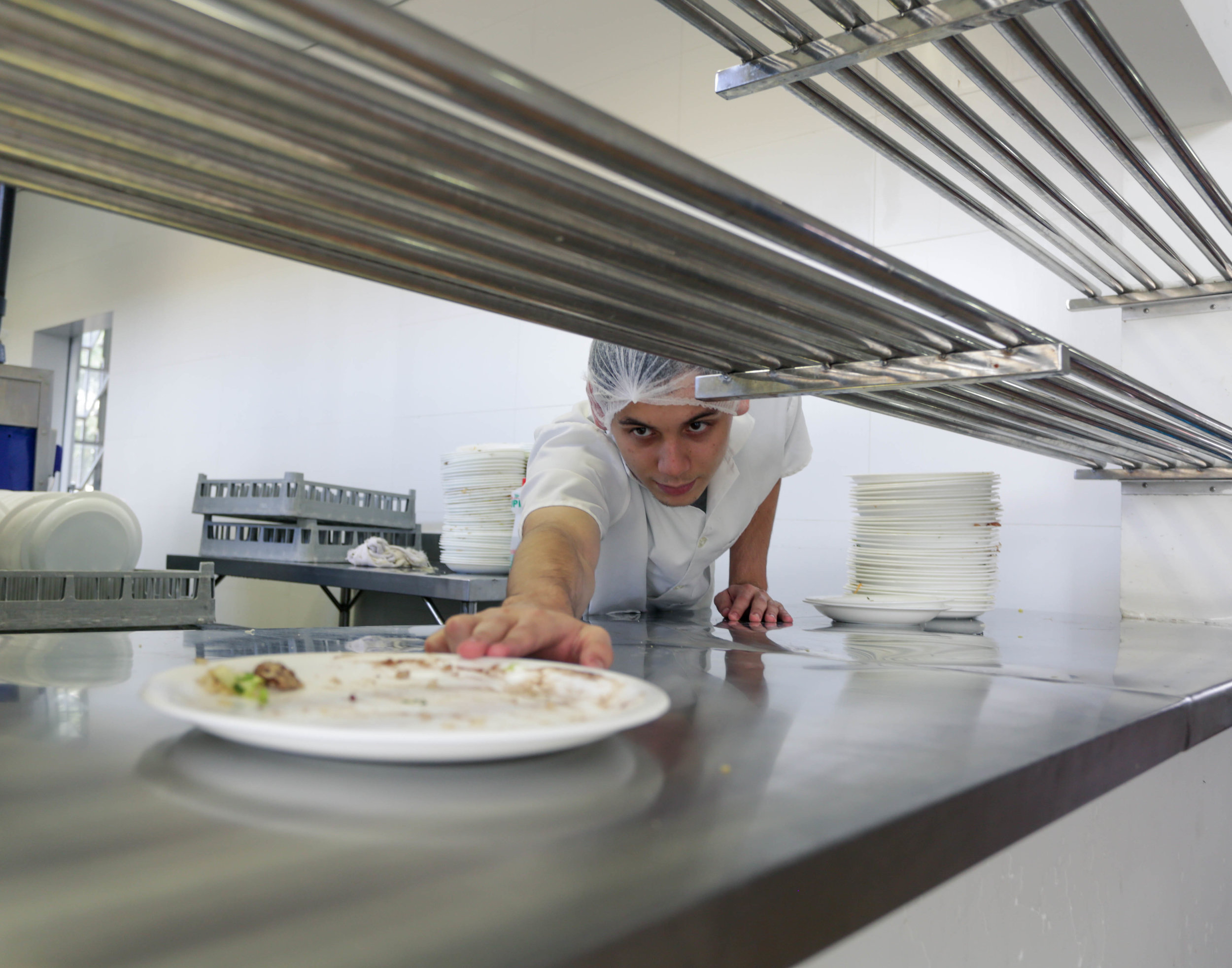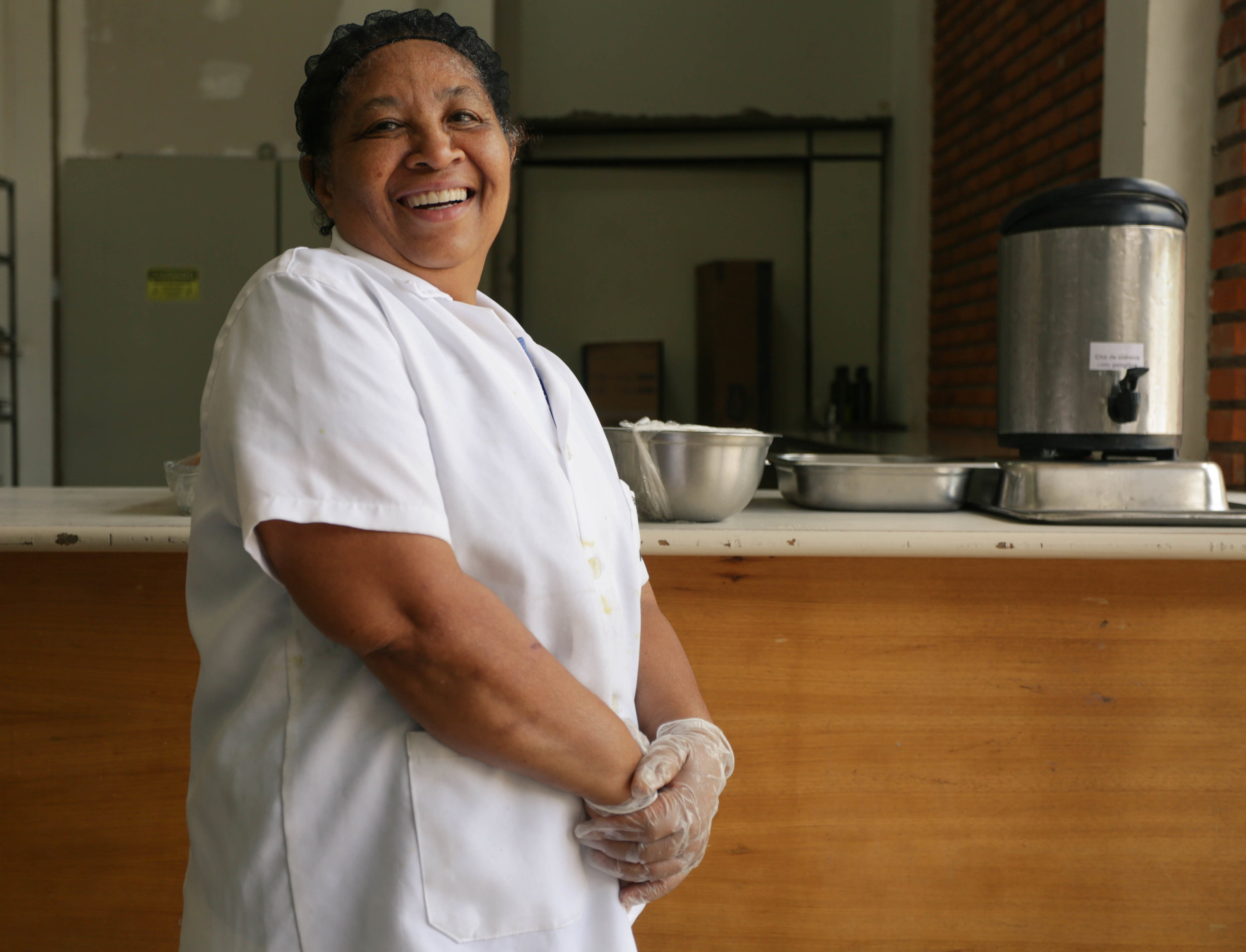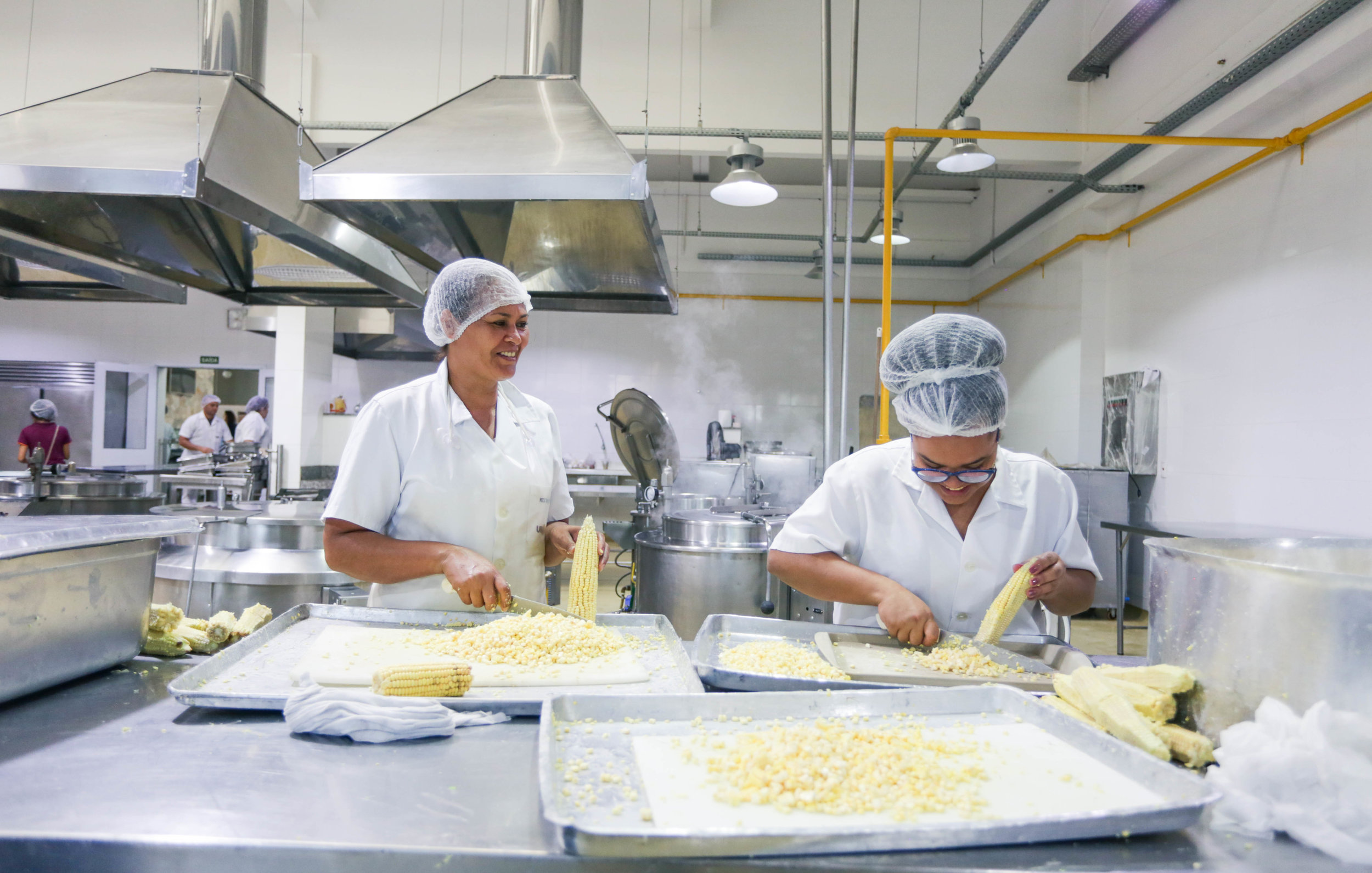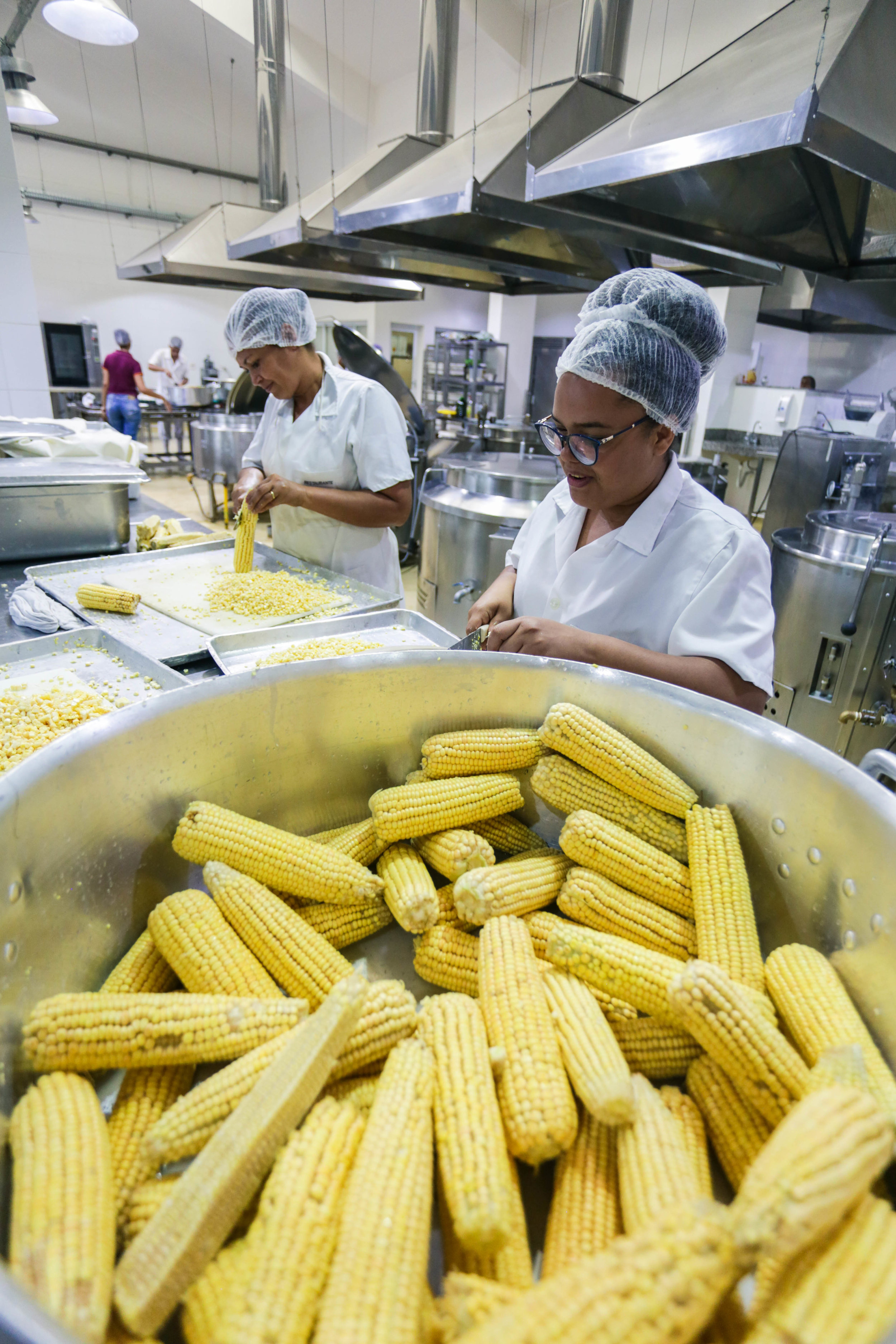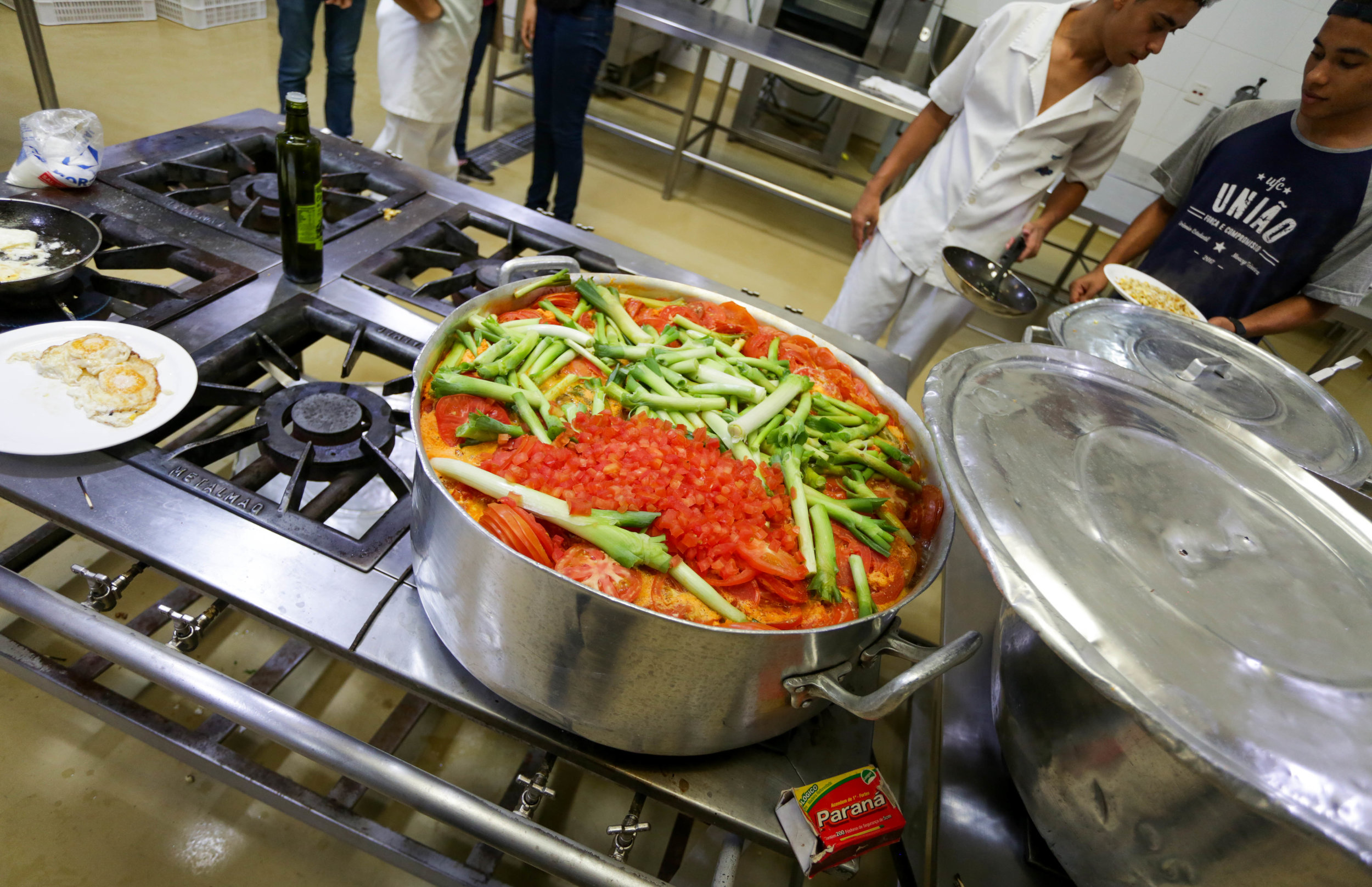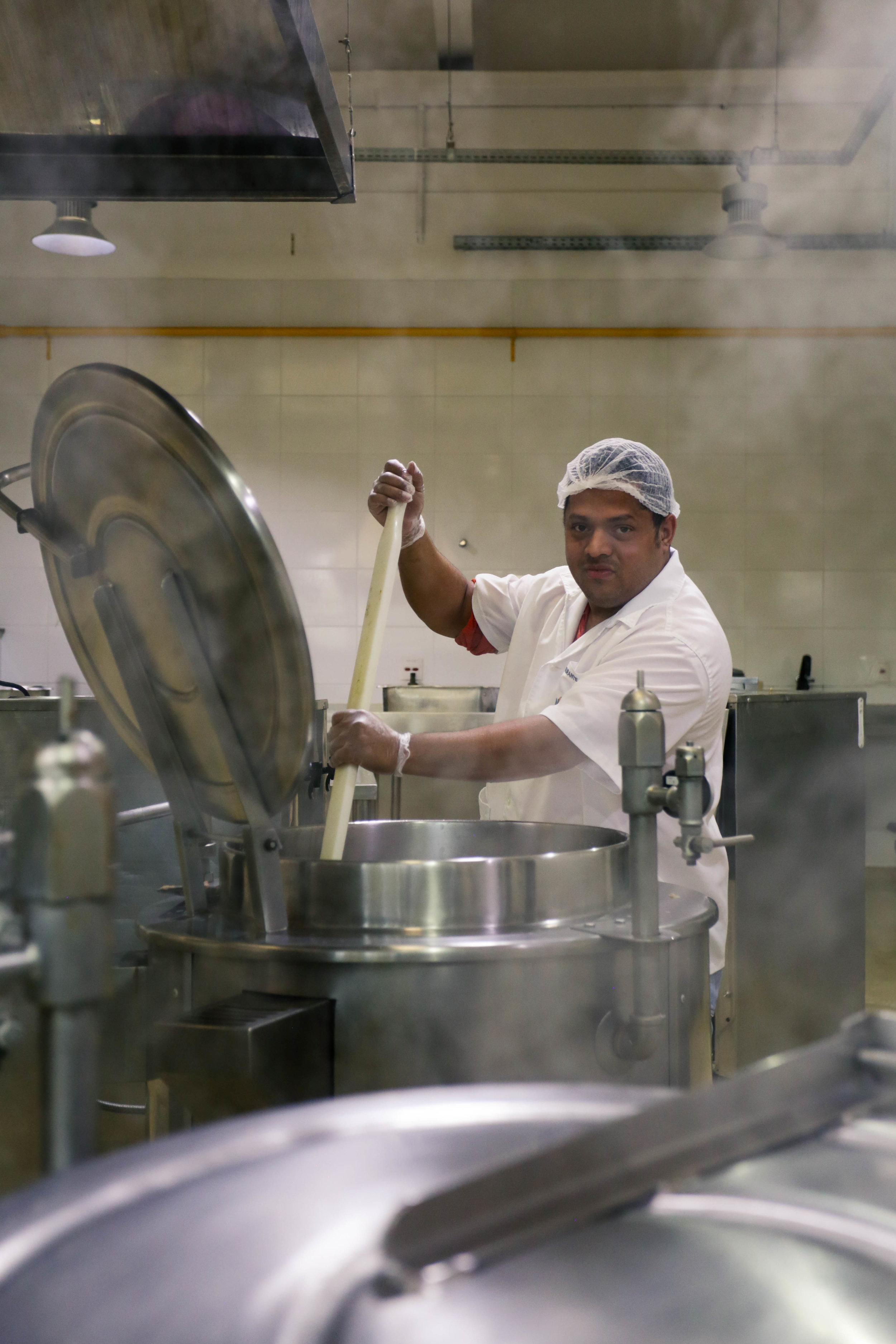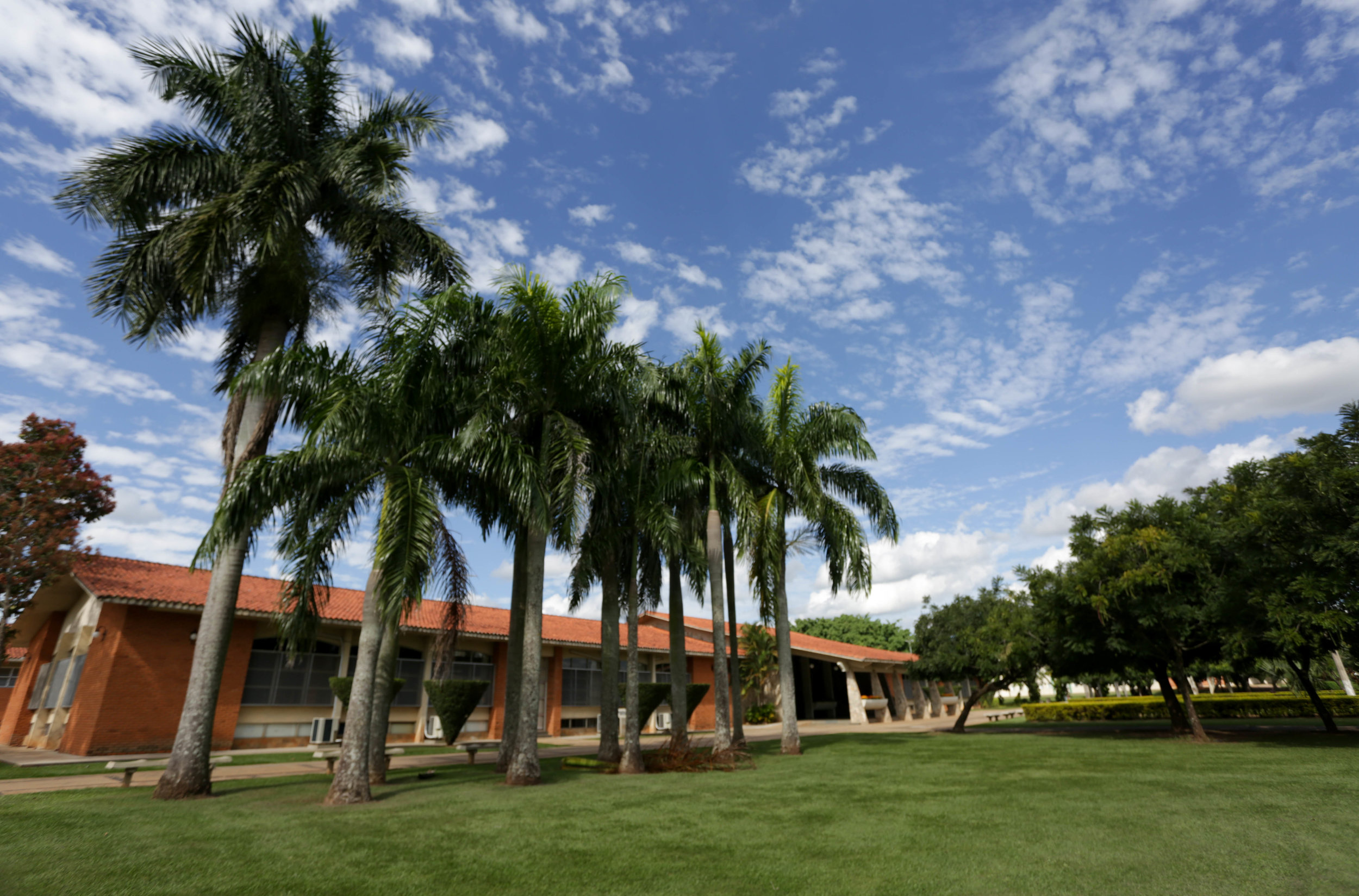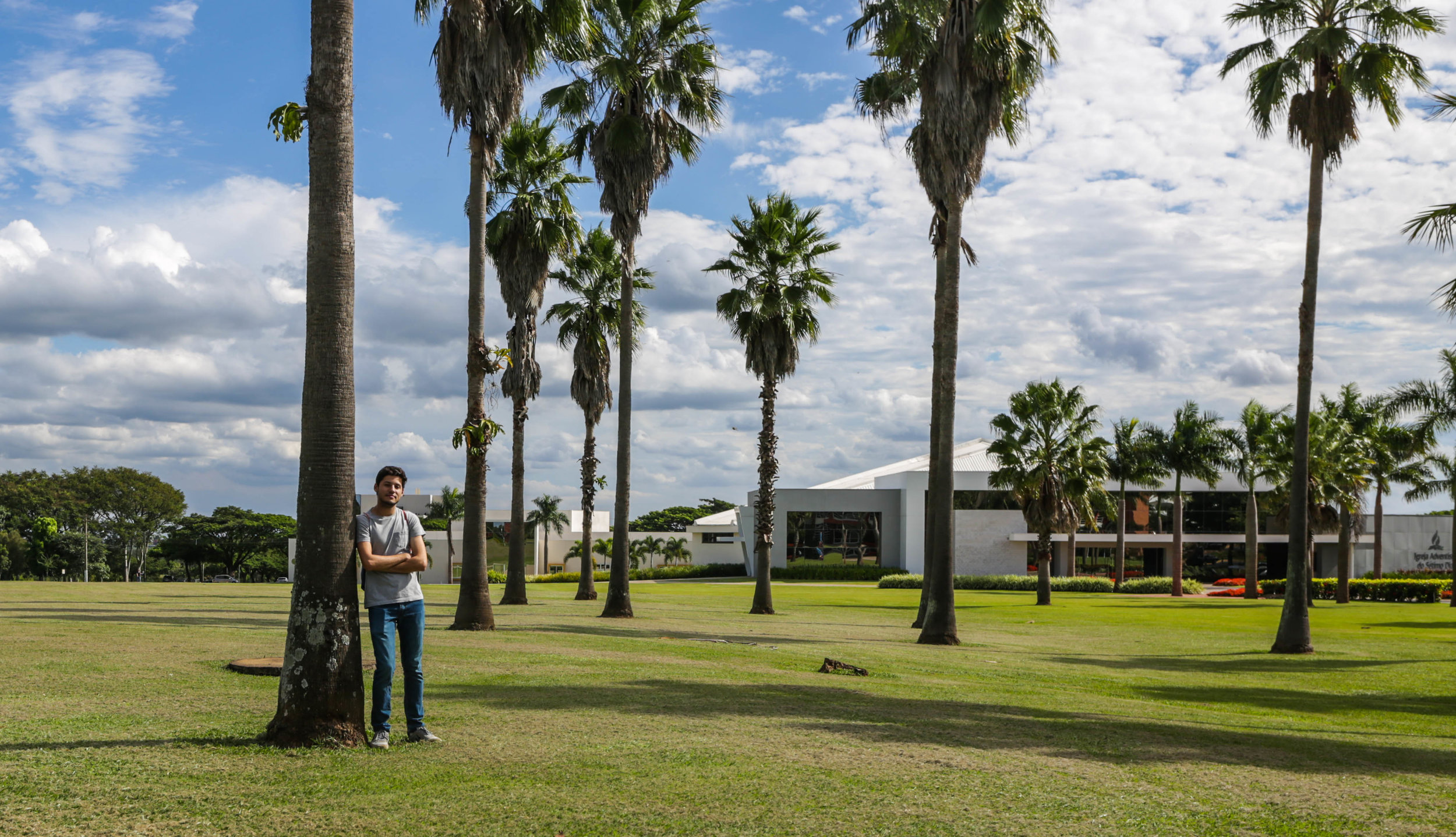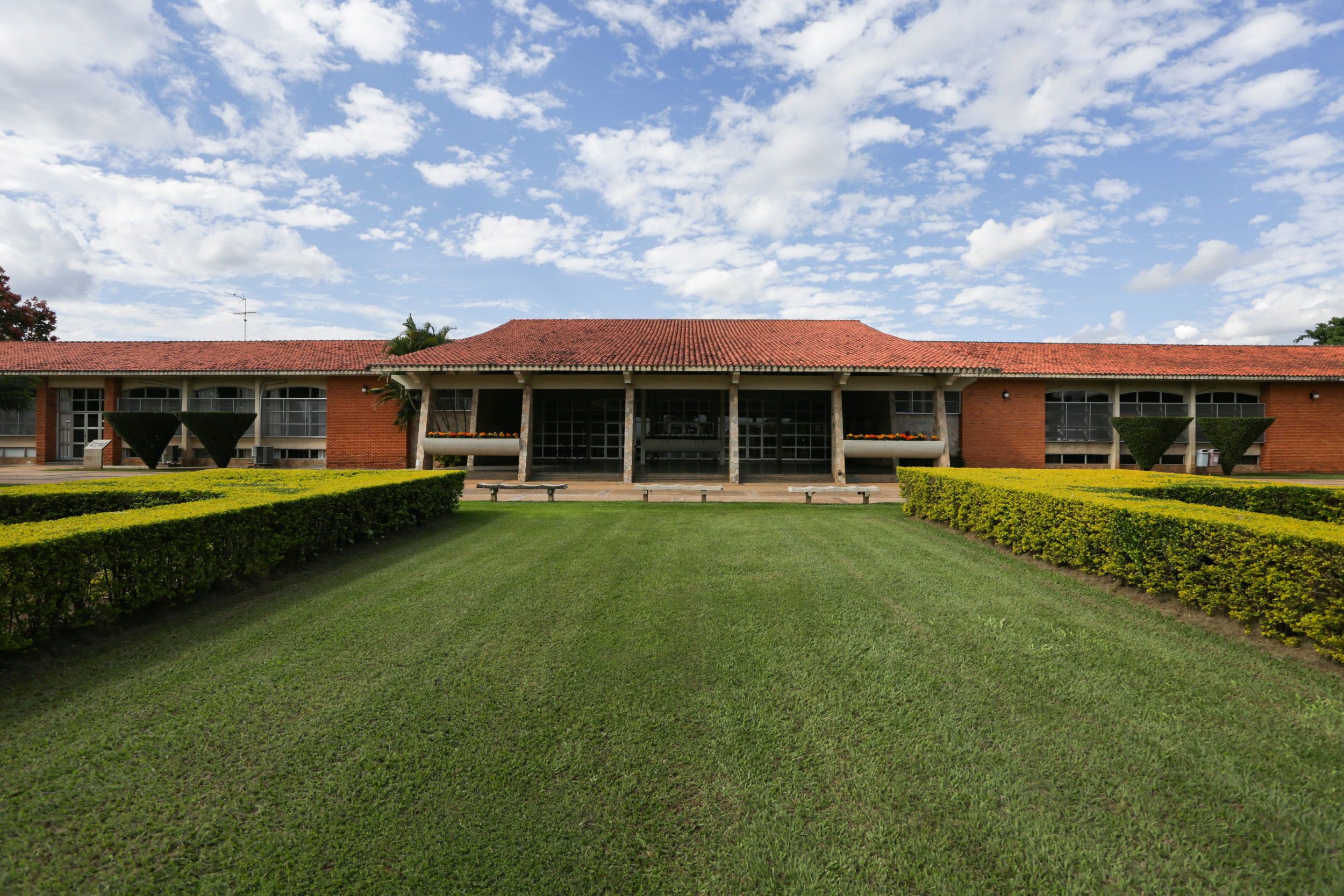Going meatless for Jesus: In Brazil, an Adventist University’s beans feed thousands
Two kitchen employees enjoy lunch during their shift. The Adventist University of Sao Paulo has a state-of-the-art all-vegetarian kitchen. The Adventists espouse a doctrine of eating vegetarian for the best health. Photo by Wes Parnell.
SÃO PAULO, Brazil — Men and women dressed in white kitchen clothes with white rubber boots and hair nets scurried to and fro, carrying beans, stirring inside cauldrons and boiling stews. They juiced mangos, diced onions and washed dishes. They made sure there were at least 10 salads, four juices and two different types of rice and beans on display at all times.
While Brazil is a mecca for meat lovers, often associated with “churrascarias” and great cuts of beef, rice and beans are also a sacred staple. One Brazilian community appreciates the diversity and utility of beans perhaps more than any other. They have kept a vegetarian diet for spiritual purposes before being vegetarian or vegan became trendy.
The Adventist University of São Paulo is Brazil’s largest Seventh Day Adventist University, with 17,000 students, according to their website. And while the sprawling campus is known for its competitive curriculum, an ancient biblical artifacts museum, and Brazil’s largest Adventist sanctuary, the linchpin that keeps this facility running is its state-of-the-art vegetarian cafeteria and the beans made inside, from black beans to Brazil’s carioca bean, similar to the pinto bean famously refried in many Mexican dishes.
The newly remodeled cafeteria is a daily home to 70 full-time workers and 45 student volunteers. The kitchen serves around 954,000 meals a month. Most of the meals depend on beans, the university’s prized protein of choice.
“We get beans by the truck load,” said Antonio Pescuma, the kitchen’s financial manager. “I have no idea the amount of beans we go through, but we have to use at least a few tons per year.”
According to Jonacyr Depaiva Sal, the University’s bean chef in charge, on a normal day, the cafeteria cooks around 50 kilos of beans. On Taco Day, the first Saturday and most celebrated day of the month, the kitchen cooks around 60 kilos of beans, averaging 1,530 kilos of beans per month — about 20 tons of beans per year. (No one complained of bean-induced flatulence).
The beans are cooked with meticulous care inside of state of the art industrial pressure cookers. As the beans begin to soften, Depaiva Sal walks through the line of stainless steel vats with a four-foot stirring stick, stirring each batch to perfection. Depaiva Sal loves his job, especially on Taco Day.
“We work full of joy and we want to serve people,” Sal said. “We do everything with hygiene, care and for the people. [Taco Day] is the most intense day of the month, but if you take into account the students, then it’s the best day. If you ask me, it’s a great day.”
The Seventh Day Adventists, so called for their belief that Saturday is the day God rested from creating the world, are a subset of the Protestant movement and form a large part of Brazil’s Christian community. They’re known for promoting health. Their vegetarianism comes not from concern for animal rights as much as simply promoting a healthy lifestyle, including refraining from smoking or drinking.
At the Adventist University of São Paulo, located about two hours away from São Paulo city center, the vegetarian diet has shaped the community, according to student Gabriel Malta.
“It [the food] helps me to become a better person,” said Malta. “The cafeteria is always busy and full of students and faculty. We spend noon to 4pm here, just talking and laughing, friendships have started here… food is a major thing that brings us together.”
Malta also attributed the healthy and plentiful cafeteria in conjunction with the university’s emphasis on spiritual development to a notable personal change.
“I’ve actually gained a few kilos since I’ve been here,” Malta said. “Compared to how I used to be before I came here, I feel more active, I have more energy, but it’s not just the food, it’s the relationship with God.”
Ellen G. White, the church’s founder, was ahead of her time, preaching that a vegetarian diet was linked directly to a healthier life and a more holistic relationship with God. White spread this nutritional doctrine since the church’s founding in 1863, well before yoga and New Age diets had become mainstream in the Americas.
Kitchen manager, Michelle Fernandez, continues White’s legacy by making sure a well-balanced and delicious spread of plant-based food is always available at the cafeteria. A nutritionist by trade and a vegetarian for nine years, Fernandez explained that food, hygiene, and faith are inseparable.
“Food gets to people in many different ways. It’s a way to connect with people and preach,” said Fernandez. “We have a very well balanced and assorted menu. You won’t find what we have to offer here anywhere else.”
Today, Brazil is home to around 1.4 million Adventists, more than any other country in the world, according to the Seventh Day Adventist Church Office of Archives, Statistics and Research. In the spirit of White, Adventist University of São Paulo continues to value food as an integral part of their campus life. With that in mind, Malta conceded that the diet is a process, one that he is still very much still going through.
“I’m actually not totally a vegetarian,” Malta said. “I can’t give up chicken, especially fried chicken.”


